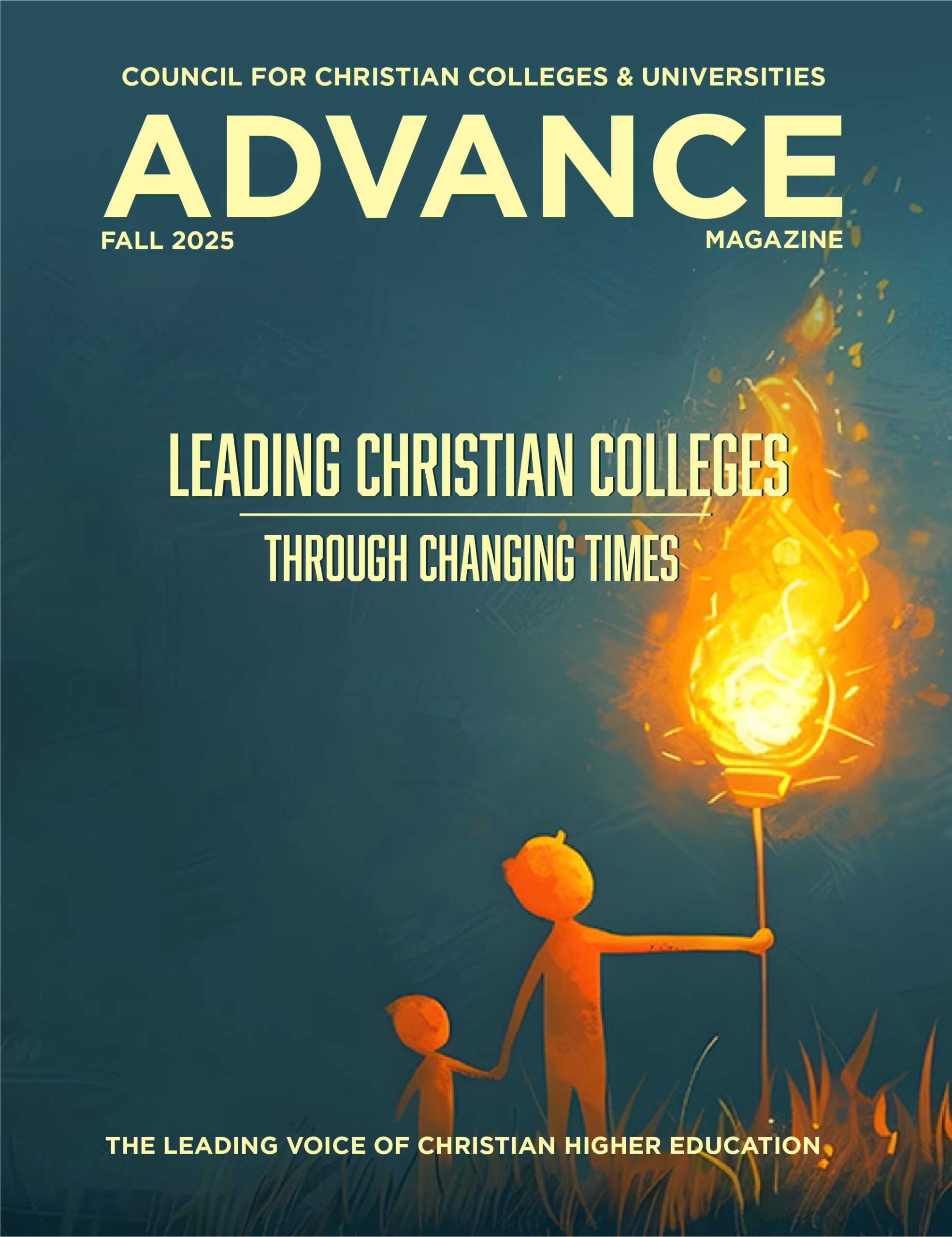Magazine
On March 13, the CCCU welcomed a new baby: Olivia Dianne Mullen, daughter of Leah Mullen, the director of enrollment and campus relations for BestSemester. Every new baby turns our thoughts to the future, and tiny Olivia has drawn me to 2037, the year when she will enter college. What will that world be like, and what will she experience on her campus? Websites and articles that predict the future have a lot to say on this subject. Understanding that trends can jump track without warning, this is one version of what Olivia’s life might be like.
In 2037, Olivia will hop into a fully automated car and hurtle toward the college of her choice. She won’t be stopping for gas since her car will be electric or solar-powered. Since she isn’t driving, she can enjoy the scenery, but she won’t see telephone poles and wires lined with birds. Those have all been replaced by cell phone towers. Her new college wardrobe won’t come from the mall where she and Leah grabbed lattes between boutiques, nor will it come from smiling boxes on her porch. Instead, Olivia will have created her new clothes in her own room with her 3D printer.
Olivia probably won’t own her automatic car or maybe even her printed clothing because access will replace ownership. The World Economic Forum predicts that by 2037, products will become services, and Olivia will rent and share rather than own. She will definitely roll her eyes at her parents’ house and will tell amusing stories about the SUV that quaint couple bought when she was born. She and all her friends will be vegetarians, aware of the impact of meat consumption on a fragile environment.
As advanced and positive as this all sounds, Olivia’s generation will also face incredible challenges. Quantumrun, a website that predicts the future based on statistical models, projects that by the time Olivia enters college, the world population will reach nearly 9 billion people – many of them unemployed because robotics have replaced a huge chunk of the labor force. Some of the earth’s minerals, like zinc, will be completely depleted. There will be greater competition for shrinking resources and a widening gap between the rich and the poor. Predictions of other experts are too dire to contemplate. One man suggests that Nebraska will have a seaport because the movement of the tectonic plates will have dumped everything to the west of it into the Pacific.
How can Olivia’s university help her flourish in this connected and contentious world? In a 2016 Solutions article, “Transforming the World by Transforming the University: Envisioning the University of 2040,” Robert Dyball, Federico Davila, and Ariane König posed this question: “[H]ow will universities combine research, teaching and learning, and civic engagement to foster just and sustainable futures?” In their view, universities serving Olivia’s generation must prepare students to be change agents who are “adept at novel, complex, and interdisciplinary thinking.” The writers go on to envision a new university focused on “humility, empathy, and human potential,” with an international cadre of students in a “vibrant campus life that emphasizes the importance of non-academic extra-curricular social activities, as well as study.” The universities they envision have strong mission statements pointing students to ownership of the world’s problems, and they connect to their communities in mutually beneficial ways. They focus on experiential learning that engages students with hands-on practice in real settings outside the classroom. These writers say, “Future universities have rethought the relationship between knowledge of what is and visions of what ought to be.”
While these writers are describing idealized universities of the future, much of this sounds familiar. It could almost be a description of Christian higher education right here, right now. The article pessimistically projects how difficult it will be for universities to change – to move out of their silos, to abandon their arrogance, and to accept responsibility for dealing with the world’s very real problems. But Christian higher education has always had this vision and this purpose.
When Olivia finishes her bachelor’s degree, she will join thousands of Christian university graduates across generations who have been steeped in the idea that their intelligence and skill and training matter to God. Her experiential learning will have taken her into her own community and around the world. She will have a profound understanding that she is responsible for changing what is to what ought to be. This will happen for Olivia not because she graduates in 2041, but because she graduates from an institution that puts Christ at the center of its curriculum. As we face dire predictions about the future of private, faith-based institutions, we can be confident in the knowledge that what we offer is what the world will increasingly need.
—–
Carolyn Dirksen is interim vice president for educational programs at the CCCU.



